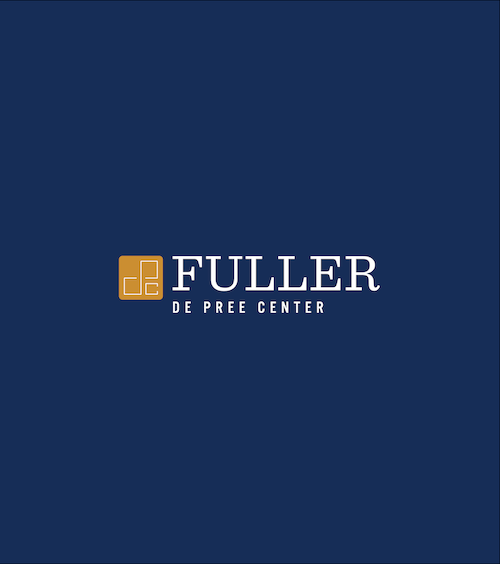Lost Art of Community: Welcome One Another
Romans 15:7, “Welcome one another, therefore, just as Christ has welcomed you, for the glory of God.”
What would it be like if you’d never been welcomed by anyone? I imagine it’s like being seized and bound by great sorrow.
Joseph Merrick knew what it’s like. Born in England in 1862, Merrick became known in society as the Elephant Man. He looked like a normal baby at birth. But he had a congenital condition that began showing by age five. By his teens, his brow stood out like a loaf of bread, his head enlarged to the circumference of a man’s waist. Growths from his neck and back of his head resembled brown cauliflower. His feet were oversized, his legs thick as trunks.
Merrick was picked up by showmen as a freak. They hid him behind a curtain where, only for pay, could people see him—and gasp in horror. Merrick wasn’t a human, he was a transaction.
Joseph Merrick was like you and me in every other way, however. He could read, write, and do normal things that accompany adulthood like anyone else. And he could feel like anyone else.
One day, a young widow came to visit Joseph. Instead of recoiling at his appearance, she smiled, walked forward, and extended her hand. He broke down in uncontrollable sobs. Later he said that this was the first person who showed him any kindness, except his mother who died early in Joseph’s life. Such an easy gift on one woman’s part turned out to be what changed Joseph’s life. It followed that Joseph began to be open to other people, who began to be open to him, including London’s Royalty. By the time of his death at age 27 he had a whole community who cared for him.
The turning point of Joseph Merrick’s life began with a simple welcome. One welcome; a changed life. Soon, many persons were “living community.”
You and I were made for community, precisely because God created you and I in his image. Genesis 1:26 reads, “Let us make humankind in our image, in our likeness.” Let us make…in our image. What is this plural “us” referring to? The Godhead, who has always been in community. One God, three persons.
Signs of Community
In most church sanctuaries is a Communion table. At the very front of the table is a space. It’s for you. It’s a place, set at the table through Jesus Christ. It’s the community you were made for. God wants to be in community with you, with us. We are welcomed.
In community, people are in right relationship with each other. People don’t look only to their self-interest. We don’t ice people out of relationships. We don’t blame, don’t oppress, don’t grab. You see a mix of people: high society and marginalized, women and men, different cultures and backgrounds—a cornucopia, all together. They don’t always see eye-to-eye. They have differences of opinion. They have convictions dearly held. But every one of those convictions is subservient to their familial relationship in Jesus Christ. They belong. What affects a person’s ability to contribute is whether they belong, and only in a functioning community can a person contribute. Having a sense of belonging is, in fact, a most fundamental human need. Belonging affirms that I have certain rights to become the person I AM purposed to be.
Have you ever witnessed such a thing? Do you want to be in that kind of community? I do.
Contrast it with stuff in business news—and there’s a lot in the news. It’s rife with stories of aggression, blame, polarization. I sit at conference tables watching adults compete over who’s the smartest in the room. In such settings, fragmentation, competition, and reactiveness replace learning, cooperation, and innovation. Rather than witness extended hands of welcome, I see it’s easier to pull back and cross our arms, be somewhat guarded and reactionary. Something happened with the community of God—with its welcoming, sharing, and deference.
How Community Makes a Difference in Business
Community is one of the most significant ideas that we should be thinking about in business today. In our intensely interconnected global economy there’s a sense of urgency, a sense that perhaps at this moment of massive societal change we have a rare opportunity to build the viable, inclusive organization of the future. Our great task is to move beyond institutional walls. To be effective, leaders must look beyond the walls of the corporation, the university, the hospital, the agency—and work to build a cohesive community that embraces all its people. We have no hope for a productive enterprise within the walls if the community outside the walls cannot provide the healthy, energetic workforce essential in a competitive world. This, I will argue, must be the logic of the revolution happening in business today.
As we move rapidly toward a world of improved connections between people, cross-pollinated creativity, and digital effects, there’s a marvelous openness today. The barriers are down; we see organizations learning from one another, exchanging knowledge, supporting one another with true friendship. Companies working in coalitions, partnerships, and networks are growing. Formation of community partnerships is an essential, preliminary gathering step.
Communities of practice are the next step, and they’re different in significant ways. They are communities, which means that people make a commitment to be available to each other, to offer support to share learning, to consciously develop potential. They’re not there only for their own needs, but for the needs of others. Also in a community of practice, the focus extends beyond the work of the community. There’s an intentional commitment to advance an area of focus or domain with and through other groups and to share those discoveries with anyone engaged in such work. The community of practice also makes its resources and knowledge available to anyone interested in such initiatives. Everyone benefits greatly from working as a community.
A Time to Choose
With all that, I’m hopeful for these times. We’re in the early stages of an historic shift in the global economy that will require us to effectively transition from false notions of a dog-eat-dog economy, driven by mounting performance pressure and angst, to a creative economy focused on nurturing leadership networks embodying the human values for collective discovery. I’m hopeful for these times because the more that digital technology pervades business the more community will matter; the more we’ll welcome others to co-create the future.
What does this word welcome mean? From the start it conveys action; welcome is a verb. It’s certainly not a vapid mat at the front door. It’s opening that door. It means receive, to grant access into your heart through friendship. Ultimately, welcoming is all about valuing relationships, about valuing people as individuals.
Jesus Christ has welcomed us. He has welcomed you back into the community of the Godhead. Therefore welcome one another. Stop judging one another. Stop making the “tests of approval” that keep people out of your heart. By grace we are welcomed. Graciously welcome one another—therefore.
Perhaps if we rediscover the root of “company” means sharing of bread, or “living community,” we’ll also rediscover work within the larger community of the Church where it rightfully belongs. Hopefully, too, we’ll see how technology is making it possible to organize new dimensions of community through new ways working that have never before been possible, integrating people and activities all over the world on a scale never before even remotely seen in the history of humanity. We indeed face profound choices.
As I see it, the missio Dei is at work connecting the working lives of professionals to “re-form” community. We need, therefore, to think deeply and imagine creatively—and wisely—how to shape the communities that we, and our children, will inhabit for the rest of the twenty-first century, based on values that really matter—really matter. The powerful economic and technological forces pushing in this direction make this outcome very possible. It will not happen all at once. It will arise from everywhere and nowhere in particular. It will advance on the basis of an outpouring of human creativity, innovations not just in the technological but in the human landscape as well—the only way a new story can arise.
But one aspect of the future is less certain: Will we build communities on the strength of inclusion and diversity, making room for people with widely varied experiences, values, and backgrounds to contribute wholeheartedly to the enterprise as they serve customers from all the world’s countries and cultures?
That is up to you.
Prayer: Father, thank you for fellowship and community that begins with the welcome of Jesus. Lord, would you take this small verse and make it become a way of life because of who you are and what you’ve done. Take what small thing we have and multiply it to become an expression of the Kingdom of God on earth. Help us to become that community.
 Rob Long is the founder and managing director of CoVenture Consulting LLC. He is an organizational innovation consultant passionate about helping clients see/k emerging opportunities and business practices for making grace functional in the workplace—in the sense of making vivid God’s practical purposes for work and to create conditions in which human potential flourishes. He holds an Executive MBA in organizational economics from the Texas A&M Mays Business School.
Rob Long is the founder and managing director of CoVenture Consulting LLC. He is an organizational innovation consultant passionate about helping clients see/k emerging opportunities and business practices for making grace functional in the workplace—in the sense of making vivid God’s practical purposes for work and to create conditions in which human potential flourishes. He holds an Executive MBA in organizational economics from the Texas A&M Mays Business School.



